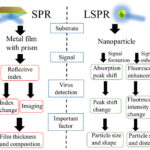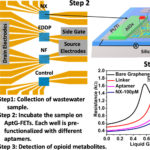A team of medical researchers and bioethicists at Oxford University has published results today in Science that furthers our understanding of coronavirus transmission. This evidence is enabling several international partners, including the Norwegian Institute of Public Health (FHI) and NHSX, a joint unit comprised of teams from NHS England and the UK’s Dept. of Health & Social Care, to assess the feasibility of developing mobile apps for instant contact tracing in record time. If rapidly and widely developed, these mobile apps could help to significantly slow the rate of transmission, and support countries to emerge from lock-downs safely, as restrictions are gradually eased.

Professor Christophe Fraser from Oxford University’s Big Data Institute, Nuffield Dept. of Medicine, a lead author on the Science paper explains, “We need a mobile contact tracing app to urgently support health services to control coronavirus transmission, target interventions and keep people safe. Our analysis suggests that about half of transmissions occur in the early phase of the infection, before you show any symptoms of infection. Our mathematical models also highlight that traditional public health contact tracing approaches provide incomplete data and cannot keep up with the pace of this pandemic.”
The project is co-led by Dr. David Bonsall, senior researcher at Oxford University’s Nuffield Dept. of Medicine and clinician at Oxford’s John Radcliffe Hospital, who explains, “The mobile app concept we’ve mathematically modeled is simple and doesn’t need to track your location; it uses a low-energy version of Bluetooth to log a memory of all the app users with whom you have come into close proximity over the last few days. If you then become infected, these people are alerted instantly and anonymously, and advised to go home and self-isolate. If app users decide to share additional data, they could support health services to identify trends and target interventions to reach those most in need.”
The authors argue that a mobile app can reduce transmission at any stage of the epidemic, in countries or regions where the epidemic is just emerging, at the peak of the epidemic, or to support a safe transition out of restricted movement or lock down. It could also help to reduce the serious social, psychological and economic impacts caused by widespread lock downs. Critically, the researchers suggest a mobile app can help slow the spread of infection until vaccines and antiviral treatments become widely available.
Prof. Fraser explains, “A contact tracing app can foster good citizenship by alerting people at risk, it can also help ease us out of confinement If we know we’ve not been in contact with anyone infected we can leave home safely, whilst still protecting our loved ones and avoiding a broader resurgence of coronavirus in our community.”
Given the level of infection across much of Europe, the team believe ongoing development of a mobile app partnership across the union would massively reduce transmission and avoid a resurgence in the number of cases, providing an opportunity for all citizens using mobile contact tracing apps to contribute towards ending the epidemic. An app strategy could also be used by low- and middle-income countries, earlier in the epidemic, to rapidly control transmission and get ahead of the epidemic now.
The Oxford team highlight that the mobile contact tracing app should still be combined with isolation of cases, tracing and quarantine of contacts, physical distancing, scaled-up diagnostic testing, decontamination and hygiene measures.
As Dr. Bonsall explains, “If the mobile app is widely adopted in any country, and combined with other critical interventions such as physical distancing and widespread testing, our models suggest the epidemic could be brought under control. This app is a tool for each and every person affected to contribute towards protecting their health services, supporting vulnerable people and simultaneously gradually releasing communities out of extended quarantine.”
Today’s Science study highlights the importance of rigorous ethical standards underpinning the successful and appropriate use of mobile phone technology in addressing the coronavirus pandemic; including a number of ethical requirements needed to foster well-founded public trust and confidence. Professor Michael Parker, Director of the Wellcome Centre for Ethics & Humanities and one of the paper’s authors, highlights, “With transparent and inclusive ethical oversight to ensure genuine public trust, it is possible to both save lives and protect civil liberties. The app should be opt-in, provide secure data storage and privacy protection, and be informed by public and user engagement at every stage of implementation. With these guarantees and, if widely installed by users across a country or regional bloc, a mobile app could even help to end the epidemic.”
As mobile apps launch over the coming weeks and months, the Oxford research team urges people to support official apps, developed by trusted institutions, and their partners, such as the mobile contact tracing apps under advanced assessment in several European countries. Professor Fraser concludes, “Our hope is to support communities with life-saving information as the pandemic worsens and help to release countries from large-scale isolation. The maths is clear: the more people that use a contract tracing app the better chance we have of getting ahead of this epidemic and eventually stopping it in its tracks. If a country reduces the epidemic growth rate to below zero, the epidemic will rapidly decline and eventually stop. Together we can make this possible.”






